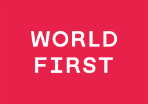Daniel is Founder and CEO and has 20 years of experience in the international finance world focusing on cross-border payments, technology and the property sectors. Daniel is widely quoted as an expert within the money transfer industry including by The Economist, The Wall Street Journal, Reuters, CNBC and Bloomberg. Daniel is passionate about helping consumers and businesses find the best and most efficient ways to transfer money internationally.
Frequently asked questions
How we calculate the savings
Contents
Summary
Netherlands money transfer regulations
Netherlands monetary and regulatory authorities
Netherlands economic background
Taxation and property
Currency
Summary
The Netherlands relies heavily on foreign trade - in 2012, the value of merchandise trade was equivalent to 160% of its GDP, the fifth-highest ratio in the world. Accordingly, the Netherlands has established a conducive framework for foreign exchange, with no currency controls or restrictions on international money transfers. The Netherlands was one of the founding members of the single European currency, the euro (EUR), which has become the second most traded currency in the world after the US dollar.
Netherlands money transfer regulations
Money can be freely sent to the Netherlands or transferred out of the Netherlands, as in other EU countries, the only restrictions being certain restrictions on foreign investment in shipping and airlines. Sending money within Europe has been greatly simplified by the creation of a single payments system. This single payment system includes all 18 eurozone member countries, as well as non-eurozone members Iceland, Liechtenstein, and Norway. Under EU Anti-Money Laundering and Counter-Terrorism Financing (AML/CFT) guidelines, travellers who enter or exit the country carrying cash worth EUR10,000 or more must declare the amount to customs authorities.
Netherlands monetary and regulatory authorities
Monetary policy is set at the regional level by the European Central Bank (ECB) and applied by all members of the monetary union. The Netherlands is one of the seven founding members of the EU, dating back to initial economic integration efforts in the early 1950s. It became a member of the Schengen free-movement area in 1985 and adopted the euro in 1999.
The country’s central bank, the Netherlands Bank (De Nederlandsche Bank, DNB) monitors the health of the domestic financial system and the institutions within it, including the supervision of domestic payment systems and foreign exchange platforms. As in most European countries, the Netherlands has a Financial Intelligence Unit (FIU) under the purview of the central bank, which works with financial service providers to ensure that suspicious money transfers are investigated under the Anti-Money Laundering and Counter-Terrorism Financing Act.
Netherlands economic background
The Netherlands has a long history as a trading nation, and it remains firmly open to foreign trade, investment and currency exchange. The Netherlands is one of the most dynamic trade centres in the EU today, with a focus on agriculture, cut flowers, manufacturing and petroleum refining. The Dutch port of Rotterdam is the busiest in Europe.
The international focus that shaped early Dutch trade and economic policy is now firmly ingrained in the Netherlands’ strong financial, legal and administrative infrastructure, making it a frequent destination for investment and migration. This exposure to international financial markets has hurt the Dutch economy since the onset of the global economic downturn in 2008 and the subsequent eurozone crisis. However, instead of closing off the domestic economy in order to reduce risk, the government has worked to increase export credit facilities, hiring incentives and other measures meant to boost trade.
Given its position as a trade hub, the country’s foreign exchange transactions are diverse. The USD was involved in 41% of all transactions on Dutch trading platforms according to the most recent Bank for International Settlements survey in April 2013. After the USD, the most frequently traded currencies are the euro, which was involved in roughly 24% of total forex transfers, the pound sterling (7.4%), Japanese yen (5.6%), Swiss franc (3.7%) and the Australian dollar (3.6%).
Taxation and property
As a key destination and source of foreign direct investment (FDI), the Netherlands has implemented a favourable tax regime. The country has signed a wide array of bilateral investment treaties and has one of the world’s most extensive networks of double taxation agreements.
Authorities apply a relatively low corporate tax rate of 20% for profits up to EUR200,000 and 25% beyond that threshold. For foreign-owned companies, the Netherlands does not apply withholding taxes on interest or royalties, and offers a reduction or exemption from dividends in many cases.
In addition, the Netherlands offers special “extra-territorial costs” tax breaks, which help to facilitate skilled migration to the country. Foreign employees who are relocated to the Netherlands may be reimbursed tax-free for costs related to their migration, which include double housing payments, residence permit fees and language courses. In select cases where foreign employees have expertise that is scarce or unavailable on the Dutch labour market, individuals can apply to have 30% of their income considered tax-free for an eight-year period.
Currency
The euro is made up of 100 cents. Euro banknotes are printed in denominations of EUR5, EUR10, EUR20, EUR50, EUR100, EUR200 and EUR500. Coins are available in values of 1, 2, 5, 10, 20 and 50 cents, and EUR1 and EUR2. Each member country’s central bank issues its own banknotes and coins; the latter have national designs on one side and common designs on the other. All euro currency from any country is accepted within the currency zone.



















